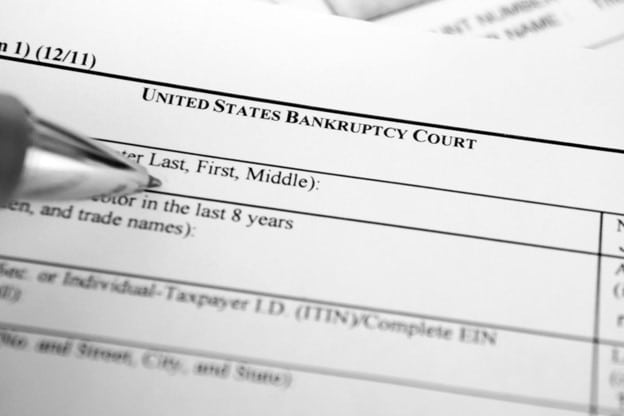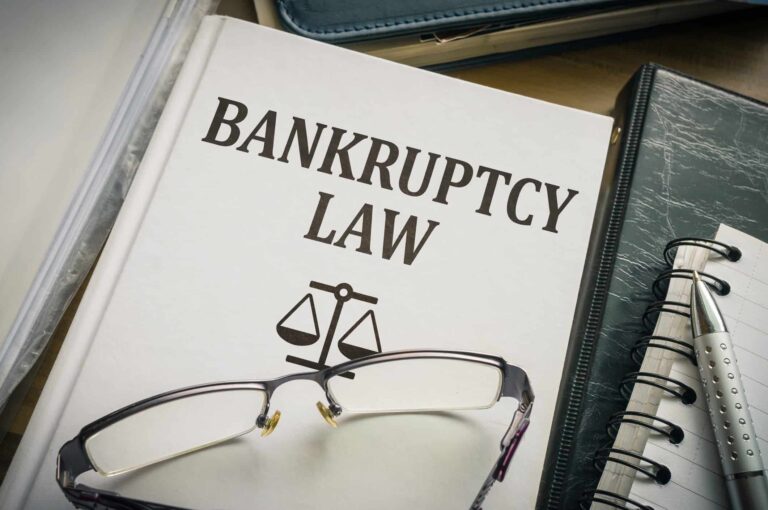3 Bankruptcy Options For Small Businesses

If your small business has a significant amount of debt, filing for bankruptcy could be the right path to take. Bankruptcy can help you reorganize your debts and might even assist you in saving your business. Bankruptcy can help you liquidate your company or eliminate personal liability for business debts. Depending on your specific needs, you may either file a personal bankruptcy, business bankruptcy, or both. First, it is important to understand what business debts you can be held responsible for.
Sole proprietors or general partners are considered personally liable for the obligations of the small business. In other words, if the company does not pay off its debts, creditors are allowed to take your personal assets as payment. However, limited partners or those with a limited liability company (LLC) are usually not personally responsible for the debts of their business.
Depending on your business, debts, and goals, it is likely that either a Chapter 7, 11, or 13 bankruptcy is your best option. Understanding the pros and cons of these options and how to determine whether you should file for bankruptcy can help identify the best way to manage your financial issues.
Chapter 7 bankruptcy
A Chapter 7 bankruptcy can be filed either by an individual or a business entity. Individuals that own a partnership, corporation, or LLC can file for Chapter 7 on behalf of the business. This type of bankruptcy is used primarily to shut down and liquidate a business since the company does not receive a discharge and cannot use exemptions. Chapter 7 is typically a desirable option for small business owners who want to close their business and do not want to deal with selling assets or negotiating with creditors. However, this form of bankruptcy will not eliminate your personal obligations on business debts.
If you are a sole proprietor, you must file a personal bankruptcy to eliminate your business debts. Because a sole proprietorship is not a separate legal entity from its owner, all business assets and debts are debts of the individual business owner. With this type of bankruptcy, you can take care of both personal and business debts, use exemptions to protect business assets, and continue operating the business even after bankruptcy.
Chapter 13 bankruptcy
A business cannot file Chapter 13 as a separate entity, so you must file Chapter 13 as an individual. This is a good option for sole proprietors with a large amount of assets because Chapter 13 bankruptcy is designed to let you keep all property and reorganize your debts through a repayment plan. Chapter 13 bankruptcy also allows other small business owners to discharge personal liability for business debts, so for those who don’t qualify for Chapter 7, it is a viable option.
Chapter 11 bankruptcy
While both individuals and businesses can file Chapter 11 bankruptcy, Chapter 11 bankruptcy is much more complicated than Chapters 7 and 13. Chapter 11 is known as the business reorganization bankruptcy. It is useful for business owners who want to continue operating their businesses while reorganizing their debts through a repayment plan. Chapter 11 is generally more expensive and complex than a personal Chapter 13 reorganization. It also has more requirements, such as filing ongoing operating reports. Personal Chapter 11 bankruptcies are rare because better alternatives typically exist under Chapter 13 for individuals.
For more information about small business bankruptcy, make an appointment with Anthony Deluca, an experienced Las Vegas bankruptcy attorney.
Should you or your business file for bankruptcy?
For many, starting a business fulfills a life-long dream. Small business owners get to be their bosses and, when successful, enjoy the financial benefits of business ownership.
Unfortunately, many businesses fail to become profitable. Over 21,000 businesses in the United States filed for bankruptcy in 2020, and another 14,347 filed for bankruptcy in 2021.
Many factors can lead to bankruptcy. Successful businesses faced unprecedented challenges during the coronavirus pandemic. Global economic factors, supply chain issues, and inflation can significantly impact a company’s ability to make a profit.
Whether you or your business should file for bankruptcy depends on your long-term goals. You can identify the best way to proceed by following these steps:
- Clarify your financial situation. Don’t use guesswork when evaluating your options. You should know how much secured and unsecured debt you have, your current operating expenses, and your revenue to understand what your feasible options are.
- Decide whether you want to stay in business. Some options are ideal if you want to keep your doors open and restructure, but there may be better choices if you want to close your doors.
- Consider the pluses and minuses associated with each type of bankruptcy.
- Confirm which bankruptcy options are suitable for your business type or structure.
Pros and Cons of Filing for Chapters 7, 11, and 13

Each bankruptcy option has benefits and disadvantages. Once you’ve determined whether you want to stay in business or shut down, you’re ready to evaluate the pros and cons of each type of bankruptcy.
Chapter 7 Pros and Cons
Chapter 7 is ideal for those who want to shut down permanently, but it’s only available to those who meet the income requirements for Chapter 7 bankruptcy. When a business owner files for bankruptcy using Chapter 7, the benefits include the following:
- The automatic stay from a Chapter 7 filing protects you from creditors and collection agencies
- Has exemptions protecting personal property and other assets
- Proceeds from assets pay creditors
- Protects your wages
- Quick resolution
- Resolves debts once discharged
- Trustee liquidates assets
The drawbacks of filing Ch 7 bankruptcy include:
- It affects credit for ten years
- Lose non-exempt possessions and assets
- Your business closes
Chapter 11 Pros and Cons
Chapter 11 bankruptcy is a good option for small business bankruptcies when owners want to save their businesses. The benefits of filing for Chapter 11 bankruptcy include the following:
- Business remains open
- Creates a plan to pay creditors
- It enables you to renegotiate debts
The drawbacks of Chapter 11 include the following:
- Chapter 11 is time-consuming
- Process is costly
Chapter 13 Pros and Cons
Only sole proprietors qualify to file Chapter 13. The pluses of filing for Chapter 13 bankruptcy include the following:
- Business remains open
- It gives more time to repay debts
- Limits damage to your credit
- Reduces sole proprietor’s debt
- Sole proprietor keeps their property
The cons associated with Ch 13 bankruptcy include:
- It affects credit for seven years
- It doesn’t cover personal obligations such as child support
- It takes up to five years to discharge debts
Business owners should also take time to review the Small Business Reorganization Act (SBRA). The SBRA makes bankruptcy more affordable and improves the bankruptcy process. The Act aims to prevent businesses from closing due to bankruptcy.
Bankruptcy Options for Small Businesses Owned by a Sole Proprietor
Although Chapter 13 bankruptcy is only available to sole proprietors, it isn’t the only option a sole proprietor can consider. Sole proprietors can also file for Chapter 7 or 11 bankruptcy, depending on their post-bankruptcy goals.
Bankruptcy Options for Small Business Partnerships and Corporations
Small business partnerships and corporations can opt to file Chapter 7 if they plan to close. Partnerships and corporations can opt for Chapter 11 bankruptcy to save their business.
Factors to Consider When Deciding Whether to Continue or Close Down Your Business
Deciding whether to close your doors is a complex choice. There are multiple people and factors to think about when determining whether your business can keep going. Some factors to consider when making this decision include the following:
- Clientele. If you offer specialized services, clients who depend on you may need help getting these services elsewhere.
- Employees. Your ability to retain and pay employees may be critical if your business is going to survive. You must consider whether you can meet your obligations or if you may face setbacks if you have employee turnover.
- Prospects. Changes in your area or industry could make it impossible to thrive, or a resurgence in demand could mean potential growth.
- Global economic factors. Changes in the marketplace could impact your business’s bottom line.
- Stakeholders. You may have investors or a board to answer to. Consider their expectations and whether you can meet them after restructuring your finances through bankruptcy.
Take time to prepare a business plan and evaluate the current market. Consider alternatives to bankruptcy and whether those options, such as refinancing, will enable your business to thrive. Once you’ve considered all options and how your decisions will impact yourself, your employees, your stakeholders, and your clientele, it will be easier to decide whether to continue operating.
How a Bankruptcy Attorney Can Help

Financial issues are typically stressful and demanding. The bankruptcy process is also complex, and the options vary. Consequently, deciding which option is right for you can be challenging.
Talking to an experienced small business bankruptcy attorney ensures you get expert guidance from someone familiar with the bankruptcy code. You can be confident that your attorney will guide you through the bankruptcy court process and help you protect qualified exemptions.
Contact a bankruptcy attorney today to discuss your situation.
Sources
Annual number of business bankruptcy cases filed in the United States from 2000 to 2021. (2023).
Chapter 11 Bankruptcy Basics. (2022).
Ekvall, L.L.W., et al. (2020). The Small Business Reorganization Act: Big Changes for Small Businesses.
O’Neill, C. (2023). Chapter 7 For Small Business Owners: An Overview.






